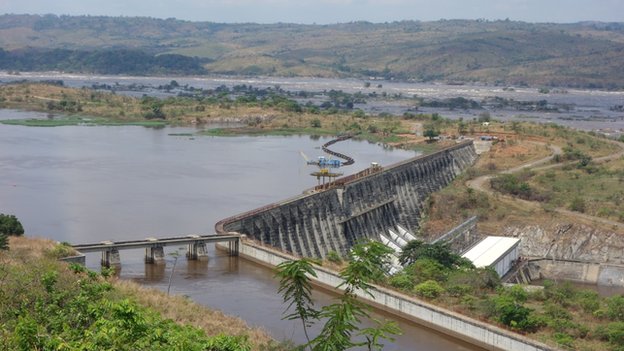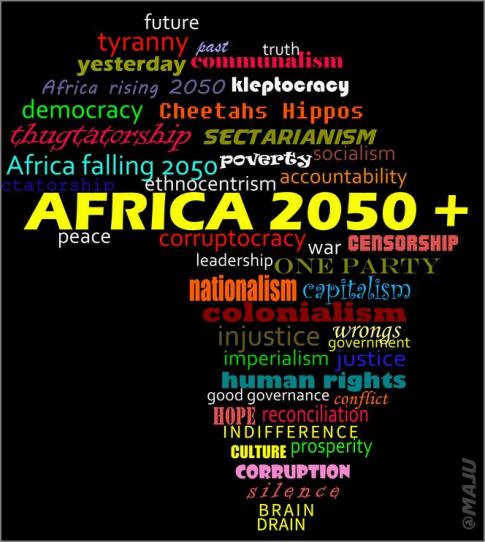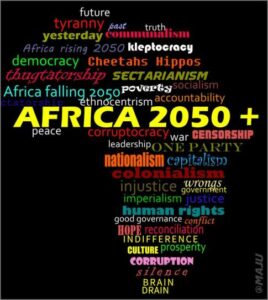The Committee on the Elimination of Racial Discrimination this morning met with representatives of civil society organizations from Kenya to discuss the situation of racial discrimination in this country, which the Committee will review later this week.
The Committee will also consider reports of Cyprus and Bulgaria this week, but there were no non-governmental organizations present to talk about the situation in those countries.
Representatives of civil society said that that the Vision 2030, Kenya’s development blueprint, recognised that no society could gain social cohesion if significant sections of that society live in abject poverty, and included equity as a recurrent principle in all its economic, social and political programmes. They drew the attention to the situation of pastoralists in 14 counties who suffered forced evictions, burning of homes, displacement, and silent killing of people and their livestock by paramilitary forces. In those counties, land issue loomed large. The Committee should urge Kenya to respect human rights and fundamental freedoms of the pastoralist communities, and to ensure the realization of the right to freedom of movement and residence within the State as guaranteed by the Constitution. Furthermore, the Committee should undertake research into the racial relation in Laikipia and Baringo counties.
Four indigenous people civil society organizations - Indigenous Movement for Peace Advancement and Conflict Transformation, Yaaku People’s Organization, Maasai Women for Education and Economic Development, and Samburu Women Trust – spoke in a joint statement.
Live webcast of the Committee’s public meetings is available at http://webtv.un.org.
The Committee will reconvene in public at 10 a.m. tomorrow, 2 May to discuss its working methods. In the afternoon of 2 May, the review of the report of Kenya will start.
Consideration of reports of Cyprus and Bulgaria will start on 3 and 4 May respectively.
Statements on Kenya
Four indigenous people civil society organizations, including Indigenous Movement for Peace Advancement and Conflict Transformation, Yaaku People’s Organization, Maasai Women for Education and Economic Development, and Samburu Women Trust delivered a joint statement, in which they addressed the gaps and challenges to the effective implementation of the Convention in Kenya. The Constitution required the State to put in place an affirmative action programme for minorities and marginalized groups, and the Vision 2030, Kenya’s development blueprint, recognized that no society could gain social cohesion if significant sections of that society lived in abject poverty, and included equity as a recurrent principle in all its economic, social and political programmes.
The indigenous people civil society organizations drew the attention to the situation of pastoralists living in the 14 counties who suffered forced evictions, burning of homes, displacement, and silent killing of people and their livestock by paramilitary forces. The land issue loomed large in those counties, the speakers said.
The Committee should urge Kenya to ensure the respect for human rights and fundamental freedoms of the pastoralist communities, the right to freedom of movement and residence within the State as guaranteed by the Constitution, and undertake research of a fact-finding mission into the racial relation in Laikipia and Baringo counties.
Discussion
NICOLÁS MARUGÁN, Committee Expert and Rapporteur for Kenya, inquired about the definition of racial discrimination in the Constitution and the country’s legislation, the payment of school fees for non-citizens as stipulated by the Basic Education Act, ethnic profiling by security forces in the context of counter-terrorism. Access to justice seemed to be out of financial reach of many Kenyans, including those who were victims of racial discrimination. What was the level of satisfaction of people displaced by the post-election violence in 2007 with remedies they received?
Other Experts noted the pattern of denial of economic, social and cultural rights which tied in with under-servicing of some counties, the situation in slums and who were the inhabitants of those slums, and land issues. Who were the marginalized and historically disadvantaged people in Kenya? How did the politics and ethnicity play into exclusion and marginalization? Experts also asked about the management of communal land and the recognition of indigenous people in Kenya.
Responding, civil society representatives said that the basic education act had not addressed the particular issues of pastoralists who continued to be marginalized in accessing education and excluded from it because of prohibitive costs.
There was no legal aid available to the poor, so all those evicted from their land to make room for multinationals could not access justice; some even feared going to courts and fighting for their rights, simply because they did not know the way of life in cities, were illiterate, did not know the procedures nor where to start in vindicating their rights. Access to justice was further constrained by high-level of corruption in the judicial system, and the fact that people were afraid to go against some individuals who held wealth and power.
Kenya will have elections in August 2017, and ethnic agendas were on the rise, which would inevitably lead to a flare up of conflict in the Laikipia county between pastoralists and the newly arrived who were those displaced earlier and settled in the county by the political decision which was ethnically motivated.
Education was free for indigenous people, but it was not accessible. Indigenous people were mainly nomadic pastoralists who moved around, distances to school ranged from 20 to 50 kilometres, and traveling those distances was not safe because of proliferation of guns and volatile security situation.
Land was an issue that people were not ready to discuss openly; a large proportion was owned by cartels and its people were sitting in central and local governments. A lot of land was given to conservation; the Government was not present to provide security and services indigenous territories; and indigenous people were not being consulted and included in decision making concerning resource exploitation, such as oil in Turkana, which was taking place on their territories. Pastoralists owned land communally, and it was the community which defined occupation and the right to use the land. The community land act was taking effect, and regulation was being developed on how communal land should be registered. There was no law that recognized pastoralists or hunter-gatherers as ‘indigenous’, which was a heavily contested term in Kenya.
With regard to the pattern of denial of economic, social and cultural rights, civil society representatives informed the Committee that currently Kenya had a devolved system of government, and had set up the affirmative fund for eleven counties which had suffered historic injustice and neglect by post-colonial governments.
The land in the Laikipia county had been changing ownership; after decolonization, all land in Kenya had been leased back for 99 years to the people to whom it had historically belonged – everywhere but in the Laikipia county where it was given to colonialists who had fought the war.
Distributed by APO on behalf of United Nations Office at Geneva (UNOG).























